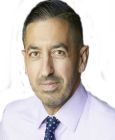Health
The Potential of Science and Its Limits
On shaping a science that builds a healthier world.
Posted March 14, 2023 Reviewed by Ekua Hagan
Key points
- Supporting public health with science is difficult due to complex systems, bad-faith actors, and unintended consequences to changes in variables.
- Too often, uncertainty can lead to scientists taking unreasonably firm positions based on their favored interpretation of ambiguous data.
- Without truth, accountability, and a recognition of limits, there is only power. Such a context is inimical to the healthy pursuit of science.
Improving the health of populations depends on science; on building a foundation of knowledge that helps guide our actions. I have previously written about how the work of public health rests on the work of population health science. My book, Population Health Science, co-written with Kerry Keyes, and several other commentaries such as this 2017 article in Epidemiology, were efforts to help advance the fundamentals of the field—the science at the heart of all we do.
To say science is at the heart of all we do is to make a statement that is more complicated than it may at first appear. Because science is produced by a clearly defined method, it can be easy to think its conclusions can be reduced to an equation in which X leads to Y and therefore the work of public health is simply the work of acting on X. Such a view of our science might say, for example, that if smoking increases the risk of lung cancer at the population level (an equation in which smoking equals X, and lung cancer equals Y), we should devote our resources to getting rid of X, working to end smoking among populations. Through this process, the thinking may go, scientific conclusions inform the work of public health and shape better outcomes.
But this simple view belies complicated challenges to how science shapes the actions that support a healthier public. First, we are dealing with very complex systems in public health. This complexity means that, while we can say X equals Y, we cannot always know what will happen if we act on X, or even how best to act on X. We are, after all, dealing with people with all their idiosyncrasies, inconsistencies, and unpredictability.
Further complicating matters is the broader context of politics, economics, technological advances, and environmental change that is inextricably linked to every aspect of the health of populations. Changing a variable, even in ways that seem self-evidently beneficial for the public’s health, can lead to unintended consequences with unforeseeable effects.
As scientists, we daily face the reality that data are rarely straightforward. Data are often conflicting and confusing, and it can take years to reach a consensus. Along the way, this process is shaped by a range of biases and priors, to say nothing of the intentional muddying of the waters by bad-faith actors. To return to the example of smoking, the tobacco industry spent years working to sow doubt about the harms of smoking and market to the public the illusion that the medical profession even endorsed the practice. This context ensured that the process of getting to X (the understanding that smoking increases the risk of lung cancer) was a long, uphill climb.
But science does not need to be influenced by bad-faith actors to be confusing, contradictory, and inconclusive. It can be that all on its own. Consider the example of salt. Is salt at the population level harmful to health? It may be surprising to learn that there are two schools of thought about that question. Each camp lives in its own self-reinforcing bubble, citing papers that reflect the preferred view, with little intellectual cross-pollination between them. This has meant that the variable X (being the health effects of salt at the population level) continues to equal…it depends on whom you ask.
Faced with uncertainty, the most constructive course would seem to be for scientists to acknowledge their limits, be transparent about what they do not know, and work, with humility, toward deeper understanding. Yet, too often, uncertainty can lead to scientists taking unreasonably firm positions based on their favored interpretation of ambiguous data.
This is understandable and deeply human. Most of us have had times when we have responded to uncertainty by clutching ever tighter our assumptions and biases, trying to maintain a stable worldview in the face of disconcerting change. The problem is when this tendency leads to scientific dogmatism and the doubling down on positions that turn out to be, well, wrong. Or, worse, when we exploit uncertainty to expand our power.
This was arguably the case, at times, during COVID-19, when we took strong stands based on data that did not support such certainty, pushing for sweeping policies that touched the lives of millions. Whether these measures were, in the end, the best steps to take from the perspective of supporting health remains an open question. What is clear, however, is that there was real currency during the COVID-19 moment in projecting an aura of certainty that policymakers could use to justify the steps they took. As public health gained power on these dubious grounds, I was reminded of a line from Dostoyevsky’s novel Demons: “I got entangled in my own data, and my conclusion directly contradicts the original idea from which I start. Starting from unlimited freedom, I conclude with unlimited despotism.”
Without truth, accountability, and a recognition of limits, there is only power. Such a context is inimical to the healthy pursuit of science. Scientific progress relies on a context of freedom—to reason, to inquire, to pursue truth wherever it leads. This process can be messy, inconclusive, and characterized by ambiguity. When our conclusions do not match our initial ideas, it is time for us to reassess, incorporate new data, and try a different approach. Science demands an openness to correction, to being wrong, and to the capacity to course correct without defensiveness or the wearing of blinders that let us continue to think we are right when we are not.
Science can be a tremendous force for good, helping us better understand ourselves and the world around us. It has helped drive progress that has created a world that is, in many ways, the healthiest it has ever been, even as much work is still to be done. But science remains inextricably linked to complexity and the fallible humanity of those who practice it. The values, biases, and assumptions of scientists will always be a factor in the work of science, as will our human tendency to occasionally ignore complicating nuance, double down on incorrect ideas, and insist we are right when we are wrong. For science to reach its full potential, it must avoid these blind alleys.
This post also appears on Substack.




